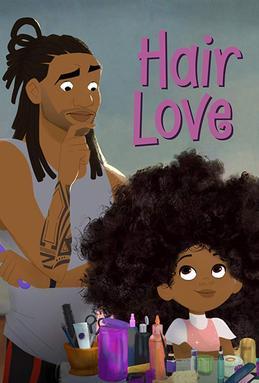
Originally released in 2019, “Hair Love” tells the story of a black father doing his daughter’s hair for the first time. In six-minutes, the short film aims to embrace natural hair and depict the loving bond between a Black father and his child.
In February 2020, “Hair Love” won the Oscar for best animated short film. Since then, the award-winning film has been turned into a children’s book and will be adapted into an animated television series on HBO Max.
Recently, Matthew A. Cherry – the original writer and director of the short – announced that Blue Ivy Carter, the eight-year-old daughter of Beyonce and Jay-Z, would narrate the audiobook. He also shared a short clip of her narration, where she introduces the title and authors. Many on the platform were quick to praise Blue Ivy for both her narration and her already-impressive résumé.
Her narration of “Hair Love” holds immense significance considering the ridicule that Blue Ivy has already endured because of her appearance. At just two years old, adults incessantly mocked her hair online, questioning why Beyoncé didn’t “take care” of her hair, taking care being a euphemism for “conform to Eurocentric beauty standards.”One woman even created a Change.org petition urging Blue Ivy’s parents to “comb their daughter’s hair.”
Now, instead of letting these criticisms inhibit her, Blue Ivy has donned numerous natural hairstyles, showing that she could care less. What better way to demonstrate this sentiment than narrating a story that celebrates Black hair?
The most impactful aspect about “Hair Love” lies in its depiction of the Black family. Often, stories like this revolve around Black pain, highlighting issues of poverty, racial injustice, police brutality, and the overall trauma that the Black community faces.
However, what often goes unnoticed are the stories that exist outside of this narrative. Yes, Black people do face struggles, but they also experience happiness, have loving families and do everyday tasks just like anyone else.
There are more than enough stories about Black suffering, but “Hair Love” shifts the conversation by showcasing Black people simply existing, and being happy while doing it.






